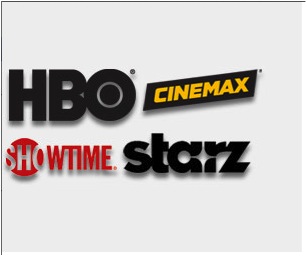 Most MLSs today have a very simple pricing structure. One size fits all. Every MLS customer receives exactly the same level of service and technology tools. There is no consideration for what services they may have available from their brokerage. This is the crux of why many large brokers are not best friends with their local MLS. They believe the MLS is “leveling the playing field”. Large brokers believe their secret sauce and recruiting advantages lie in the technologies they offer to their agents. They argue that the “full-service” MLS is diluting the impact of their significant investments in breakthrough and differentiating technology tools.
Most MLSs today have a very simple pricing structure. One size fits all. Every MLS customer receives exactly the same level of service and technology tools. There is no consideration for what services they may have available from their brokerage. This is the crux of why many large brokers are not best friends with their local MLS. They believe the MLS is “leveling the playing field”. Large brokers believe their secret sauce and recruiting advantages lie in the technologies they offer to their agents. They argue that the “full-service” MLS is diluting the impact of their significant investments in breakthrough and differentiating technology tools.
While large brokerages might want their MLS to reduce the number of services offered, small brokers, on the other hand, welcome the support their MLS can provide them. They love when their MLS offers a depth of training options, marketing and prospecting tools and effective ways to enhance listings like virtual tours, mortgage calculators and mobile solutions. Interestingly, this important group of smaller brokers usually makes up the lion’s share of the revenues being collected by a MLS.
The large brokers with the largest voices want the MLS to limit its services and “stay out of their way”. The smaller brokers welcome the support and breadth of services the MLS can afford to them and their agents.
This is what we call a conundrum.
So what’s an MLS to do?
Here’s a new idea to consider to address this universal conflict between small brokers and large brokers.
How about creating a flexible pricing strategy where every broker can decide what services they would like the MLS to offer to their own agents?
What if Large Broker “A” could choose to offer MLS, public records, showing appointment software and transaction management to its agents? What if Large Broker “B” could choose to offer just MLS and public records? What is large Broker A could get rid of her training staff and choose a training package that could be offered trough the MLS to save cost?
What if Small Broker “A” could choose to offer all of the tools offered by the MLS and Small Broker “B” could offer everything except virtual tours because he has negotiated a great price with a local virtual tour vendor? In this model, MLSs put brokers in the driver’s seat of the service offering provided by the MLS to their own agents. The Broker gets to decide what technologies he/she would like to “own” and which ones they would like to leverage from the collective power of their entire local real estate community.
The same paradigm could hold true for eCommerce. Many large brokers like to sell products to their agents either as part of a technology fee or as individual products. Why not allow the broker to decide what products would be available for sale to their own agents?
This concept significantly changes the paradigm between the role of the MLS and the broker in determining what each broker’s MLS subscription looks like. It may help finally address the age-old “leveling the playing field” problem that continues to plague so many MLSs today. It may also actually create opportunities for generating more monthly subscription revenue. Traditionally, MLS subscriptions include an “all you can eat” menu of a variety of technologies. Maybe MLSs can switch to a model more similar to the Cable industry. The base service can be akin to “basic cable” – good enough for the basics, but not as much fun or interesting as enhanced packages. Large brokers could offer basic cable only and then surround the package with their own suite of exciting technologies.
Other packages might be packaged according to function. Maybe there’s a “marketing” package that includes marketing technologies like virtual tours, CRMs, CMA’s etc. Maybe there’s another package that includes unlimited training, not only for core MLS technologies, but also for iPads in real estate, mobile, Windows training, MAC training and even sales training etc. Each of these packages could be priced according to the number of technologies and the amount of service that goes along with them. I would love to see an MLS put brokers in the driver seat of the technologies they make available to their agents from the MLS.
This model does not come without some complications in my view, however. First, few MLSs have a billing system and technology deployment strategies that allow the MLS to create customized billing for each customer. This is complicated further in the cases where MLSs wholesale their subscriptions through the local associations. I believe it would be very difficult to implement the broker-centric model described here unless the MLS controlled the entire billing process on behalf of their associations.
Second, while MLSs might offer this flexibility, large brokers might still feel as though they need to offer all of the tools offered by the MLS so that they do not lose a competitive advantage versus their competition. It may be a whole lot of work without the desired net result of creating service offerings that meet the unique needs of different customer types.
Third, it may simply not work. Brokers may not really care enough about the MLS service offerings to go through the hassle of selecting the package that works for them. It may make sense to offer “basic cable” to everyone and then let them choose to upgrade. Conversely it may make sense to offer everyone the highest level premium package and allow brokers to opt-out as they choose. In either case, agents may get upset if they cannot have access to a tool they like because their broker does not value it.
The concept is not without its dangers, but I think it would be interesting to explore it more seriously in a market where there is a large preponderance of large brokers who simply would like MLSs to “stay out of their way.”





Victor, this would pose a real issue in our MLS and the basic system as it would have to be customized for many different access levels. You are correct. There are pros and cons. In a small MLS struction such as ours, the largest brokerage may only have 100 agents. If we offered al la carte, not only would it be a billing nightmare but a programming and monitoring nightmare. Large MLS’s may invite this model for profit but it seems that in small MLS’s it could reduce the revenue stream and the ability to budget properly.
Just my thoughts…..Hope all is well…..See you at Clareity!
Marilyn,
You outline the conundrum well, but there is a tricky part about your solution. The one-size-fits-all MLS of today is very efficient and can keep costs down. Customization will reduce the economies of scale and add additional cost. If the solution is too costly, it will not be implemented.
In addition, complexity kills any good idea. I like your solution, but fear it may be too complex to “sell” in the marketplace. Even so, it is worth exploring.
Dave
Dave, You’re right. This idea is not without its complications. There may be a middle ground – something like what the Cable Industry offers where there 2 to 4 levels and the broker can opt-in to one of those levels. There may also be another level(back to the complicated idea again) where the broker buys the “basic” cable for her agents and then the agents buy the upsell packages on their own. Interesting to think about ways to marry the technology solutions offered by the broker with the MLS technologies and provide them both in a comprehensive technology fee to their agents. Bottomline, what I would love to see is a way for brokers to be able to take a more active role in the technology decisions of their agents if they so choose.
3 is the magic number (Google the “rule of 3”). I think the package idea has merit and I have been thinking of that at the association level as well. Large Boards have the ability to provide more member support than the medium and the medium more than the small. Maybe associations can look at the same 3-tier model for state dues.
Thanks, as always, for making us think.
Marilyn,
The issue which smaller MLS’s struggle with is often that the simplicity of a good basic system and a menu approach is often viewed with skepticism and possibly as opportunistic of the MLS/association to offer the add-on services. Plus, for those of us of smaller size, the ‘buy down’ effect we have to bring the enhanced service to all subscribers is still such a marginal savings that we are ineffective after the effort. Thoughts on how the small to medium size providers can get involved in this model with any sense of relevance?